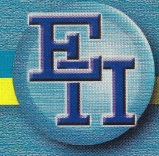All articles sent to “Economy and Forecasting”, providing they correspond to the journals’ profile and are prepared in accordance with the standards and requirements (see the requirements for authors), are submitted for review. The review process is designed to determine the research’s novelty, contribute to the article’s quality and ensure a strict selection of the best articles to be published in the journal.
Reviewers may be either embers of the Editorial Boardor other specialists in the relevant scientific fields, who have significant achievements and scientific prestige. The Editorial Board does not consider any articles sent by the authors on their own.
The review process is confidential (double-blind review). Review is carried out by no less than two specialists in the relevant field who are to answer a series of questions that fully characterize the article. Author and reviewer are anonymous to each other. The review process lasts at least a month.
The duty of reviewers consists in providing an unbiased insight of the article’s advantages and shortcomings and its scientific level, in a carefully treatment of the new scientific knowledge set out in the article and in makingall efforts to avoid any damage to the author’s reputation and career.
As a result of the review, the article may be accepted, returned for revision with relevant recommendations or – in the case of two negative reviews – rejected by the Editorial Board. In any case, email message on the review outcome and review texts are sent to the author.
In case of the opposite positions of the reviewers, a third reviewer is invited.
If the article needs to be revised, a new version, revised by the author, is subject to additional review. The author should highlight all the changes (including tables and figures) in order to contribute to a faster conclusion. The author has two attempts to improve the article: if the second attempt fails, the article is rejected definitively.
The reasons for negative review include the lack of novelty, insufficient independence of the study, lack of evidence, the inability to formulate conclusions or outline the prospects, poor handling of materials, incorrect use of terminology and methodological apparatus and other shortcomings.
In case of positive review or after a proper revision, the article is to be considered at a meeting of the Editorial Board, where final approval is granted by open voting.



